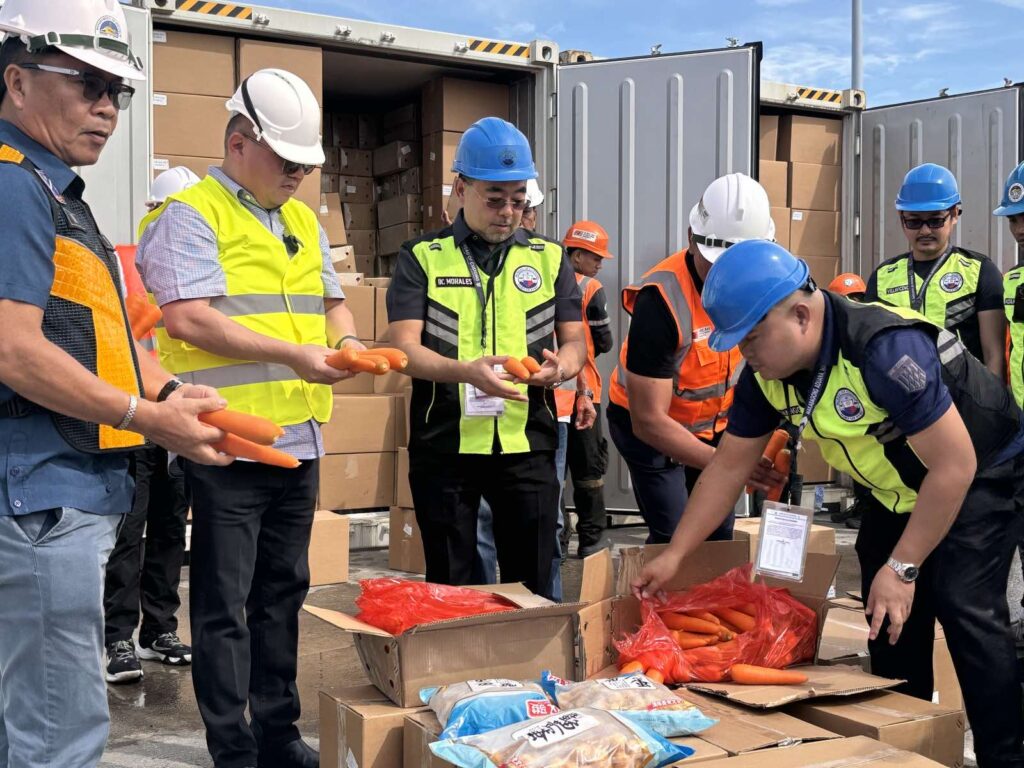
The Department of Agriculture and the Bureau of Customs confiscated P136 million worth of fresh carrots, yellow onions and tobacco products that entered the country illegally.
Local authorities on Wednesday confiscated P136 million worth of fresh carrots, yellow onions and tobacco products at the Port of Subic that entered the country illegally.
The Department of Agriculture (BOC) and the Bureau of Customs (BOC) seized five container vans of fresh carrots and yellow onions valued at P21 million and another two container vans of cigarettes estimated at P115 million.
Five containers of fresh carrots and yellow onions were imported from China by Betron Consumer Goods Trading, which initially declared the cargo with frozen fish egg balls.
READ: P10.8-M smuggled cigarettes seized in Pagadian City
On the other hand, two containers of tobacco products from Taiwan, sourced by Subic All N1 Corp., had tissues on the front of the van but were found to contain cigarettes.
“Clearly, these are smuggled goods that rob our government of tariff revenue, pose a risk to public health, and undermine the livelihood of our vegetable farmers,” Agriculture Secretary Francisco Tiu Laurel Jr. said.
“As directed by President Ferdinand Marcos Jr., we will be relentless in our effort to go after these smugglers,” he added.
Bureau of Plant Industry director Gerald Glenn Panganiban said confiscated vegetables would be tested to determine whether they are safe for human consumption.
These tests, he explained, would check if these perishable goods had pesticide residues, heavy metals and microbiological contaminants.
Any imported agricultural products that fail these tests would be condemned and destroyed as they are deemed unfit for human consumption or would pose health risks.
Fresh vegetables and other agricultural products sourced from abroad require sanitary and phytosanitary import clearances to ensure that these goods follow existing standards to protect the health of humans, plants and animals, and prevent the spread of diseases or pests.
For processed food items, importers are required to secure permits from the Food and Drug Administration.

